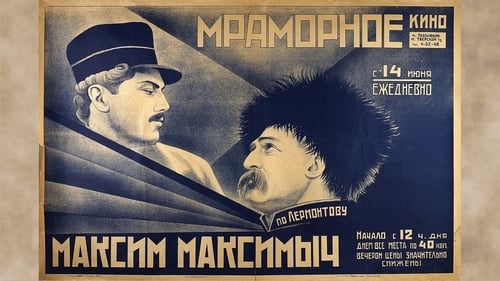
The Soviet motor ship "Albanov", running into a submarine rock, crashes in North sea. Passengers and command on boats head for off-shore rocks and find temporal shelter. Getting a signal about the calamity of motor ship, detachment of divers-rescuers at the head with the chief of party - commissar Petrov - begin works on getting up "Albanov".

Tadeusz
The end of the 1920s. Polish Diet a bill discusses the War Ministry to increase the production of weapons and oil for the needs of the army. Occur violent clashes between right-wing forces and the Communist faction, opposed the war with the USSR. The leader of the Social Democrats Staszewski asks to project that a heavy burden will fall on the budget for improvements to the commission. At this time, in oilfield Bohuslav strike, caused by hard labor working conditions, starvation wages and anti-Soviet policy of the government.

Archive footage from the 1920s juxtaposed against a film-within-a-film parodying the melodramatic excesses of popular cinema of the day.

Petrushka Grinyov
An adaptation of Pushkin's historical novel about the Pugachev's Rebellion in 1773–1774.

Pechorin
War and love in Caucasus.

Pechorin
Pechorin is deprived of the officer’s rank and gets transferred to one of the mountain villages of the Caucasus. He gets bored of the everyday life and starts looking for fun. He promises Azamat to help him steal Kazbich’s horse if the former allows Pechorin to marry his sister Bela. Soon Pechorin gets annoyed by Bela’s presence. Kazbich, insulted by the theft of his horse kills Bela. Coldblooded Pechorin is hardly moved by this news.

The boring daily life of the high society of Pyatigorsk in the XIX century is revived by the arrival of Pechorin from St. Petersburg. Pechorin’s love affair with Mary becomes the subject of controversy.

Originally titled Wings of a Serf in the USSR, this Russian historical pageant (original title: Krylya Kholopa) manages to pack a lot of detail -- and a great deal of nonsense -- into its scant 60 minutes. Throwing accuracy to the four winds, the screenplay deals with a fabricated romantic triangle involving 16th-century Czar Ivan (Leonid Leonidov), his wife the Czarina (Sofya Askarova) and his wife's paramour Nikita (Ivan Klyukvin). The celebrated brutality of Ivan is crystallized in a single moment wherein the czar throws a bowl of scalding soup into the face of his court jester. American critics who'd grown weary of the praise lavished on such Soviet classics as Potemkin seemed to delight in pointing out the deficiencies of Czar Ivan, the Terrible, as if to say "See? They aren't all classics!" Nonetheless, the film did record business when it opened at New York's Cameo Theater in March of 1928, two years after its original release. ~ Hal Erickson, Rovi

History of theft and double crossing when two thieves fall out over the theft of the money of the proceeds of the sale of a house by a banker to a religious community.

The main protagonists of the film are Katya (Varvara Popova), the daughter of a factory worker and Andrey (Ivan Koval-Samborsky), the son of the former owner of the factory who illegally returns to the USSR to find treasures hidden by his father. The film title refers to the Communist party's appeal, after Lenin's death, to enlarge its membership.








